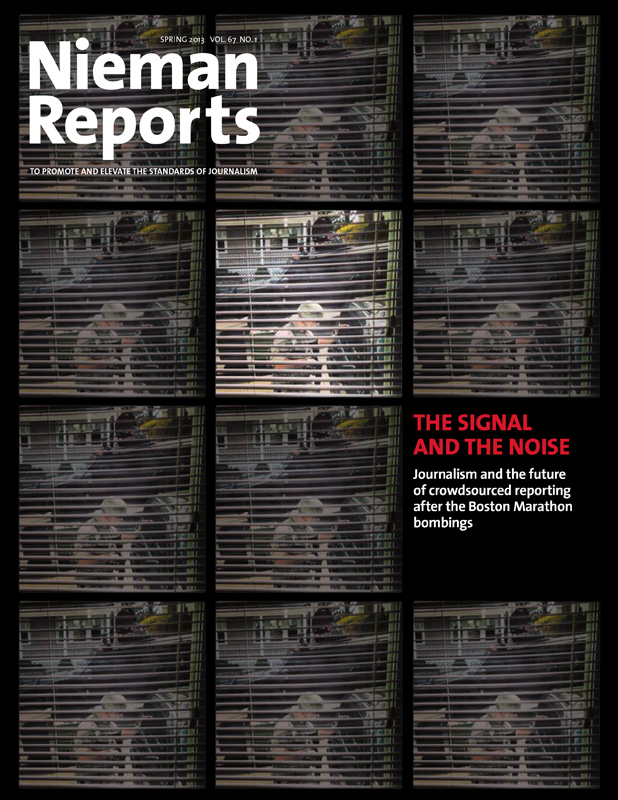The battle raged over 29 words.
In 1999, the Chicago Tribune published a five-part series, “Trial and Error,” that for the first time documented the incidence of prosecutorial misconduct nationally. One of the stories I oversaw examined the case of the DuPage 7, a group of suburban Chicago lawmen who were charged with framing an innocent man for murder.
Acquitted at trial, the prosecutor, Thomas Knight, sued the Tribune for libel over 29 words he claimed showed the newspaper’s malice toward him. There wasn’t any consideration of settling with Knight, whose deeds, we maintained, were fairly and accurately reported in the story, no matter what a jury decided about his criminal culpability. An innocent mistake mischaracterizing the source of grand jury testimony appeared in the text, but it was no more than that.
So we prepared to face him in court. We gathered in the basement of the Tribune Tower in a brightly lit room stacked with thick files and drained coffee cups. Around the table sat lawyers, private investigators, reporters, editors and jury consultants. We were there for reasons that might sound pompous and self-important, but were true just the same: to defend the reputation of our newspaper, the integrity of our work, which had focused on inequities in the criminal justice system, and the ability to carry it out unimpeded.
The case cost millions of dollars. The trial in 2005 lasted three weeks. In three hours, the jury found in the newspaper’s favor.
I bring up this episode as a reminder that for newspapers, underwriting rigorous self-defense was sometimes a necessary part of doing business. When the stakes were high, you fought your accusers, even when the cost was prohibitive. That was one benefit of being a robust, financially stable and not-easily intimidated news organization.
Today, I work at Bloomberg News, which has the temperament, will and resources to not back down. When I first joined Bloomberg, a burly former police reporter named Mark Pittman, who had taught himself the intricacies of finance, filed a Freedom of Information request with the Federal Reserve Bank, requesting data on its emergency loans to the biggest banks. When the Fed refused to answer, we sued. And we won. Without legal action, the public would never have known the full extent of the bailouts during the financial crisis.
Last summer, Bloomberg didn’t hesitate to publish a searing account of the vast wealth accumulated by relatives of China’s incoming president, exposing the lucrative inside track of the country’s elite. In retaliation, Bloomberg’s website in China was promptly unplugged.
Ultimately, these investigations take a lot more than a fat checkbook. Acting in the public interest, whether as a community newsletter or an international news organization, requires, above all, courage, determination and leadership. It helps to be big, but to apply the basketball metaphor, there’s also playing big. When times were good in daily journalism, there was luxury in our pursuits, and I don’t mean first-class airline seats. The persistence of questioning, the unwillingness to accept the first answer, or second answer, when you knew the facts were still buried beneath them, the ability to spend months reporting only to discover you needed to reverse course, was the greatest extravagance of all. And it helped produce some great journalism.
In 1993, the Chicago Tribune devoted a front-page story to the slaying in the metropolitan area of every child under the age of 15. The newspaper spent years investigating the criminal justice system in Illinois. These stories helped spur public debate and policy reforms. That sort of leadership is not only possible, but essential, even with tighter budgets. Thankfully, it’s still in evidence.
The New York Times flexed its considerable muscle, racking up four Pulitzer Prizes in April for its impressive array of coverage. At the same time, a Pulitzer went to InsideClimate News, a Web-based news organization with only seven full-time journalists, for taking on the culprits behind one of America’s biggest oil pipeline spills.
There’s great risk, expense and uncertainly in scoping out these kinds of stories, but news organizations will have to plant themselves in the thorniest, most complicated and most controversial issues of the day if they want to survive. In part, it’s their responsibility. But in practical terms, it’s the only way to remain viable within their communities. With the decentralization of media, legacy news providers have learned, the hard way, that classic investigative reporting that names names, that demands accountability, that values accuracy, that looks out for the common good, is the one essential product not easily replicated—and worth every penny.
 Robert Blau, a 1997 Nieman Fellow, is deputy executive editor, investigations, at Bloomberg News and a member of the Pulitzer Prize Board.
Robert Blau, a 1997 Nieman Fellow, is deputy executive editor, investigations, at Bloomberg News and a member of the Pulitzer Prize Board.


